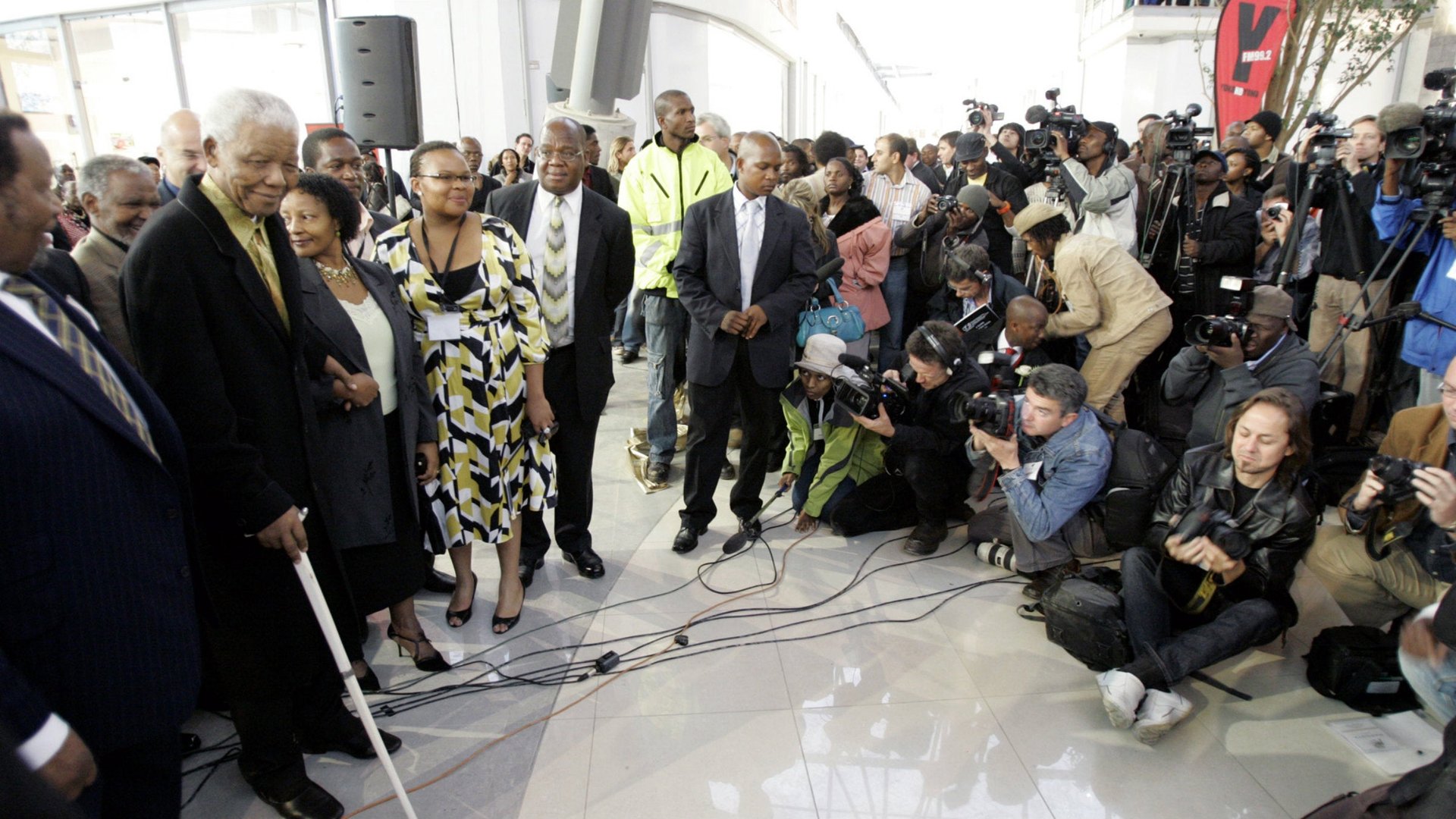Why the left-leaning Nelson Mandela was such a champion of free markets
One often overlooked aspect of Nelson Mandela’s legacy is South Africa’s economy. Parallel to everything amazing the man is connected to—freeing the country from the shackles of apartheid, subordinating retribution in favor of peace and reconciliation, and unifying a volatile nation at risk of civil war—he laid the groundwork for South Africa as the continent’s economic powerhouse.


One often overlooked aspect of Nelson Mandela’s legacy is South Africa’s economy. Parallel to everything amazing the man is connected to—freeing the country from the shackles of apartheid, subordinating retribution in favor of peace and reconciliation, and unifying a volatile nation at risk of civil war—he laid the groundwork for South Africa as the continent’s economic powerhouse.
There are a lot of directions Mandela could have taken the country in those early post-apartheid days. At each juncture, he seemed to make the right call. When it came to the country’s economic policy, he chose free markets. Today, South Africa is Africa’s most powerful economy—though Nigeria may overtake it any day—and in 2010 was added to the elite BRIC grouping of fastest-growing economies (Brazil India China Russia, now known as BRICS to include South Africa). It has Sub-Saharan Africa’s largest stock market capitalization, most heavily traded currency, highest sovereign credit rating, and highest purchased government bonds. South Africa also maintains Africa’s most modern business infrastructure and attracts the greatest foreign direct investment and number of global companies.
That Mandela would embrace the open-market path that led to this is somewhat remarkable given the African National Congress’s (ANC) and his own Marxist-communist leanings. In 1990, he lauded Fidel Castro’s Cuba as “a source of inspiration to all freedom-loving people.”
As an activist, Mandela openly called for nationalization of South African companies. Yet as president, he embraced an open economy and courted international investors. As the first leader of post-apartheid South Africa, Mandela miraculously realigned the ANC’s socialist, development state orientation toward trade, investment, and connecting to global capital markets.
There were a lot of reasons he did it. It is suggested he started to change his views in jail, “One could argue that while he was in prison he began to shape his thoughts that instead of a hard line socialist view of nationalizing the economy, he recognized the need to embrace capitalism while balancing progressive policies toward greater economic equality,” says Standard Bank Chief Economist Goolam Ballim.
Surely, some of his transformation was visionary and strategic. He’d noted the direction the world was heading, away from communism and toward globalized finance, businesses, and markets. In 2000, Mandela would say: “As I moved around the world and heard the opinions of leading business people and economists about how to grow an economy, I was persuaded and convinced about the free market. The question is how we match those demands of the free market with the burning social issues of the world.”
On bringing about greater economic equality, he was also pragmatic, learning from the post-liberation experiences of neighbors Mozambique, Angola, and Zimbabwe, and understanding that South Africa’s whites still had much of the country’s capital and capacity. Pushing them away through forced income redistribution policies would likely decrease, rather than increase stability. (“Keep your whites!” was the well-known line of advice given by Mozambique president Samora Machel to Robert Mugabe shortly before Zimbawe’s independence.)
“His message of forgiveness and reconciliation promoted by the pursuit of justice for all showed the rest of Africa and the world that South Africa was open for business,” economist Magnus Kpakol wrote in an email to Quartz.
Indeed, Mandela knew he needed to open the country for business because South Africa’s post-apartheid economy was in trouble. Years of sanctions aimed at divestment had left the country economically isolated and the government nearly broke. Madibe set out to commercially reconnect South Africa to the world. His first step was to bring in people who could do it, including his vice president and successor Thabo Mbeki, banker Chris Liebenberg as first finance minister, economist Iraj Abedian as an advisor, and eventually appointing Trevor Manuel—a now longtime economic steward in the South African government—as finance minister in 1996.
Out of his tenure and cabinet came the GEAR policy (Growth, Employment, and Redistribution) and a commitment to carefully balance progressive reform while embracing and not alienating business and markets.
While his deputy, Mbeki, would flesh out much of the country’s economic framework, Mandela set the tone, laid the groundwork, and brought about the peace and stability South Africa needed for business to thrive.
With Mandela’s passing, there will certainly be a great deal of introspection on post-apartheid South Africa’s past and future. It finds itself at a crossroads, much of it related to business and economic policy. The country faces challenges of labor unrest, low growth, and some roiling in global financial markets. In 2012, protests around mining, one if its strongest sectors, led to highly publicized riots and killings of civilians by South African police. The country’s bonds and currency have been under threat of downgrade. And there are still glaring challenges with unemployment and inequality, lending to leftist populist sentiment finding traction in national dialogue, largely from the voice of South African politician Julius Malema.
While there is much work to be done in South Africa toward Mandela’s initial goals of balancing open markets with income equality, his country’s economic successes stand as yet another example of good decisions he made early on paying dividends down the road. To contrast, the conventional direction facing him at the time was much more similar to contemporary Zimbawe, hardly a model of prosperity for the world or Africa to follow.
As Africa quickly becomes the world’s next growth region and engine of business, South Africa still very much remains its economic beacon. Mandela’s influence, including his choices on economic policies, is largely responsible and will continue to shape his legacy.
Follow Jake on Twitter @jakerbright. We welcome your comments at [email protected].